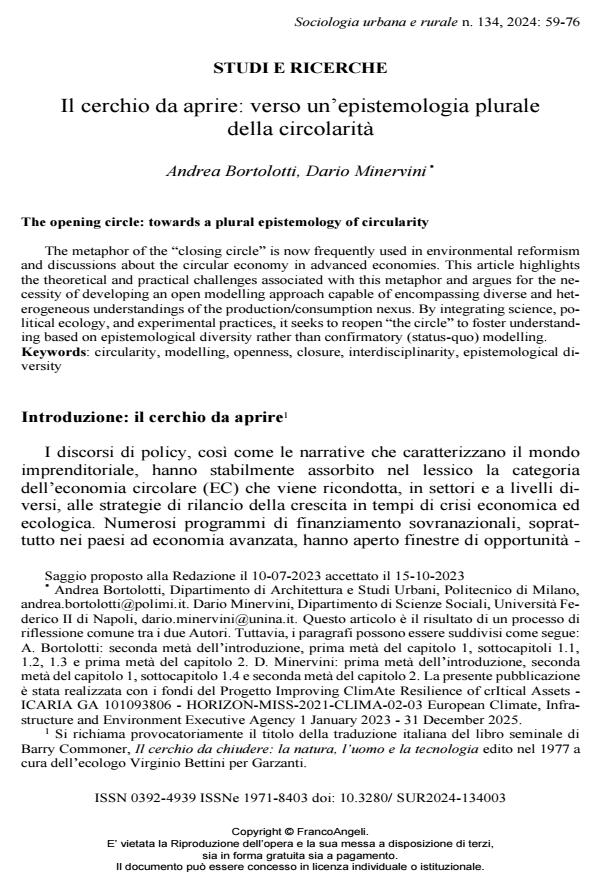Il cerchio da aprire: verso un’epistemologia plurale della circolarità
Titolo Rivista SOCIOLOGIA URBANA E RURALE
Autori/Curatori Andrea Bortolotti, Dario Minervini
Anno di pubblicazione 2024 Fascicolo 2024/134
Lingua Italiano Numero pagine 18 P. 59-76 Dimensione file 307 KB
DOI 10.3280/SUR2024-134003
Il DOI è il codice a barre della proprietà intellettuale: per saperne di più
clicca qui
Qui sotto puoi vedere in anteprima la prima pagina di questo articolo.
Se questo articolo ti interessa, lo puoi acquistare (e scaricare in formato pdf) seguendo le facili indicazioni per acquistare il download credit. Acquista Download Credits per scaricare questo Articolo in formato PDF

FrancoAngeli è membro della Publishers International Linking Association, Inc (PILA), associazione indipendente e non profit per facilitare (attraverso i servizi tecnologici implementati da CrossRef.org) l’accesso degli studiosi ai contenuti digitali nelle pubblicazioni professionali e scientifiche.
Il riferimento metaforico alla “chiusura del cerchio” accompagna ormai costantemente il riformismo ambientale ed il dibattito sull’economia circolare nei paesi ad economia avanzata. In questo articolo si richiamano le criticità teoriche e pratiche che caratterizzano tale metafora e si argomenta la necessità di elaborare una modellizzazione aperta, capace di includere modulazioni del nesso produzione/consumo diversificate ed eterogenee. Attraverso un incontro fra il dibattito scientifico, le istanze dell’ecologia politica e le pratiche sperimentali, si intende riaprire “il cerchio” per una comprensione fondata sulla diversità epistemologica piuttosto che su modellizzazioni confermative (dello status-quo).
Parole chiave:circolarità, modellazione, apertura, chiusura, interdisciplinarità, diversità epistemologica.
Andrea Bortolotti, Dario Minervini, Il cerchio da aprire: verso un’epistemologia plurale della circolarità in "SOCIOLOGIA URBANA E RURALE" 134/2024, pp 59-76, DOI: 10.3280/SUR2024-134003